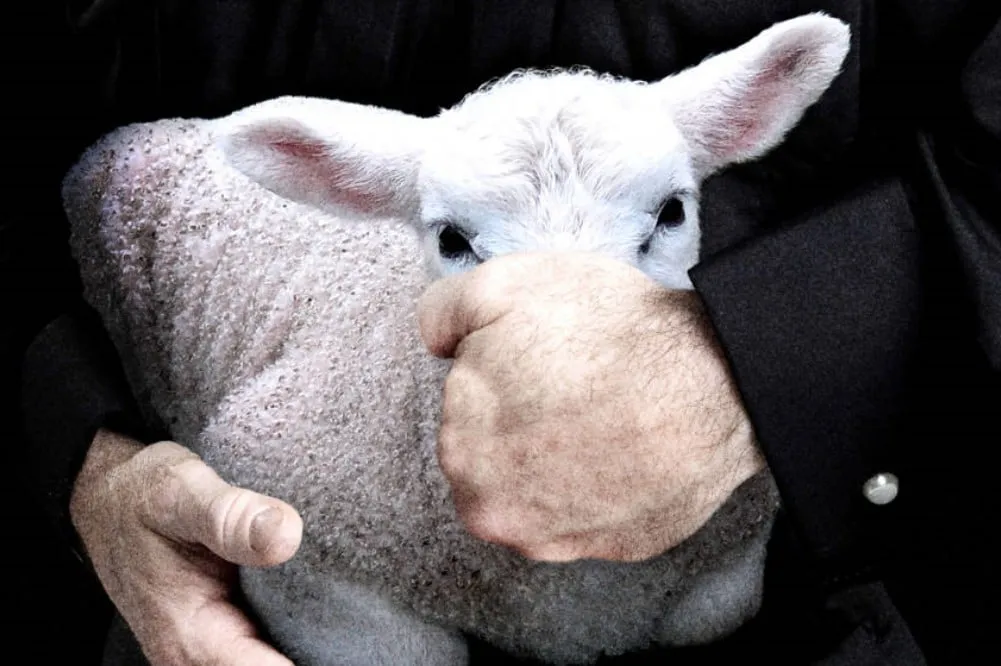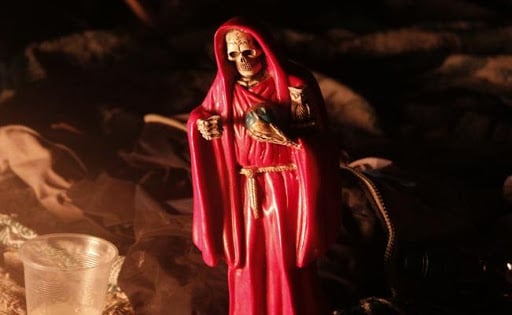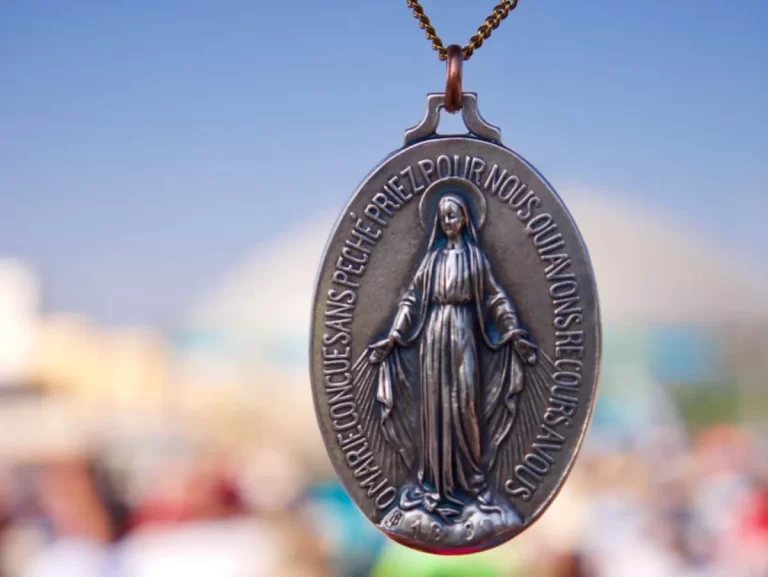The Examination of Conscience for Children: Definition and Steps
There are behaviors that are reprehensible for faith, behaviors that could be explained by human nature, and that lead us to commit sins, among which there are seven, and children must be explained what is a capital sin and what is the punishment for committing any of them, but this must be done taking into account the age of the child and trying to give it a meaning that they can understand and teach them to examine their conscience for children , which is what we will try to outline here.
Examination of conscience for children
To help make a good examination of conscience for children , it is necessary, not only that they know what the ten commandments are, but that they understand what their true meaning is, therefore, we want to offer our help, through this article, to unravel the real meaning of the laws of our Lord, especially if it is an examination of conscience for first communion children.
1.- You will love God above all things
This means that we must love God much more than anything or anyone on earth, because he loves us infinitely.
That is why it is reasonable for us to ask ourselves: Do I really love God much more than all things? Have I prayed when I wake up, at night when I go to sleep, when blessing food, and when I start my studies? Have I believed in witchcraft, superstitions such as horoscopes, or witchcraft activities? Have I mocked the things of God? Have I been ashamed of being Catholic, or of my religion that I profess? Have I trusted other things or people to help me instead of trusting God alone when I have a problem?
If the answer to any of these questions is yes, then it will be necessary to help the child to understand that they are transgressions of divine commandments, that they must repent of them and come to have the firm conviction that these situations will not happen again.
2.- You will not take the name of God in vain
It is our obligation as good Catholics to honor the name of God and all those things that refer to him. In short, it is about respecting everything that has been consecrated to God. In this sense, we must ask ourselves if I have said the name of God, of Jesus, of the Virgin Marina or of the saints, without due respect? Have I sworn unnecessarily or have I named God for any nonsense, such as saying: “by God that is true”? Have I promised something to God and not kept it? Did I say bad words? Have I mocked the name of God?
Depending on the answer, it will be necessary to explain to the child that there are issues that are considered sacred, that they cannot be the object of any trifle, and that they cannot be used for anything, such as the name of God.
3.- You will sanctify the parties
This commandment indicates to good religious who have the obligation to attend Holy Mass on Sundays and holidays, that we have to learn to live our lives complemented with charity all day Sunday.
That is why you have to ask yourself if I have missed mass on Sundays to go play or watch television? Haven’t I wanted to go to Mass some Sunday and when my parents take me? Am I late for mass? Have I been distracted from Mass, or have I talked or played? In this case, children must be taught the value of meditation with God during the celebration of the Eucharist and how important it is to achieve peace through the word of the Lord.
4.- You will honor your father and your mother
You have to explain that you should love your parents very much, respect them, obey them in all the good things they tell you, and help them in everything you can.
Then, we will ask ourselves, have I disobeyed my parents? Have I disrespected you? Have I made fun of them? Have I been spoiled with them by demanding luxury things or toys and money? Have I caused you sadness by my conduct? Have I been ashamed of them? Have I been respectful to older people whom I should respect?
It is good for children to understand the value of respect, of consideration, not only for their parents, but for any figure that should represent some kind of authority with respect to them.
5.- You shall not kill
This means that we have the obligation to preserve life, all kinds of life, not only take care of your life, but the life of everyone and everything.
In this case, the questions we should ask ourselves are: Have I fought with other boys or girls? Have I hit my siblings or other small or weak children? Have I hated or envied someone? Have I wanted others to do badly? Have I wanted revenge on someone? Have I spoken ill of other people or gossiped? Have I made fun of or criticized a colleague or another person? Have I put my life and that of others in danger, for example playing in the middle of the street where cars pass that can run over?.
The reflections regarding these questions will help the child to understand the importance of preserving his life and the life of everything that surrounds him, the importance that this has for God and the duty to follow this precept throughout life.
6.- You will not commit impure acts
You must live being pure, as God wants you to be, and respect your body and that of others. And not do things I shouldn’t do when it comes to sex.
This exam will require a lot of understanding of the psychology of children, because it is not about teaching them wrong ideas, what it is about is explaining in a good way the exact understanding of these matters, therefore questions will be asked such as: Have I retained impure thoughts? in my brain instead of praying to God to help me? Have I looked at pornographic and impure movies or magazines? Have I told or laughed at bad and impure jokes? Have I committed impure acts with myself or with other people?
Depending on the answers and the age of the child, it will be necessary to explain to them very well about the truths of life and about the respectful way in which they should interrelate.
7.- You will not steal
This commandment means that you should not take from another person what is his against his will and you should not take something that does not belong to you. In this examination of conscience we will ask ourselves: Have I stolen other people’s property? Have I accepted stolen things? Have I returned what was lent to me? Have I wasted my time instead of studying? Have I caused damage to other people’s property? Have I kept change from my parents’ money or have I spent it on little machines, even though my mother needed it?
In this case, it will be necessary to explain to the children that goods, the things that people have, do not fall from the sky, that people have to work very hard to obtain them and teach them the importance of hard work, which is ultimately the true value that things have The meaning of a thing is not so much the thing itself, but the effort that went into acquiring it.
8.- You will not raise false testimonies or lies
The true meaning of this commandment is that the truth must always be told. That God is true, and that what goes against the truth is not of God.
Therefore we will ask ourselves, have I told lies? Have I harmed other people with my lies? Have I said bad things about someone and they are not true? Have I cheated on exams?
We must teach that the true weapon of the human being is honesty, that truth and honesty make us true Christians and bring us closer to the kingdom of heaven.
9.- You will not have impure thoughts or desires
This implies that we should not think, look, or talk bad things about sex. That God wants us to be respectful of our body and that of others.
Therefore, questions like, Have I retained impure thoughts in my brain? Have I said bad things about sex? They are important, because their answers can give us an idea of how we can help the child understand the true meaning of carnal desire.
10.- You will not covet the goods of others
Envy impoverishes the spirit of human beings, therefore we should not want to seize what does not belong to us.
The answers to questions such as Have I been envious? Have I badly desired what my neighbor has? Have I damaged what belongs to others because it is not mine? Have I shared my assets with others who do not have? Am I not happy with what I have and God has given me? They will give us an indication of the moral code that the child is developing, regarding property and how he is forming himself for the future.
act of contrition
Jesus, my Lord and Redeemer, I repent of all the sins I have committed until today, and it weighs me with all my heart because with them I have offended such a good God. I firmly propose not to sin again, and I trust that by your infinite mercy, you will grant me forgiveness for my sins, and you will take me to heaven because you are good.
Other questions whose answers can guide us regarding the spiritual shortcomings that a child may have are: Have I apologized when I have offended someone? Have I forgiven when I have been offended? Do I help others at home, at play, in class? Have I set a good example? Have I encouraged others to do bad things? Have I been selfish in thought or deed? Have I been jealous of others? Have I excluded someone from my games? Have I prayed for others and helped them to be closer to God?
These questions, in addition to being related to the fulfillment of God’s commandments, will also help us to explain to the children that there are the so-called deadly sins, whose execution can distance them from the Lord’s mercy, and that they also sin by omission, that is, That is, they will not be at peace with the Lord, not only if they have not done anything to transgress his rules, but they will not be if they were able to prevent someone from committing a reprehensible act and did not try to prevent it. If the good that was within their power to do and simply did not.
So these are our outlines on how to do soul searching for children in the most effective and least traumatic way for them.

Hello! Let me enthusiastically introduce myself as a dedicated blogger fueled by an intense passion for meticulously crafting insightful and well-researched blogs. My mission revolves around providing you, dear readers, with a veritable treasure trove of invaluable information.







